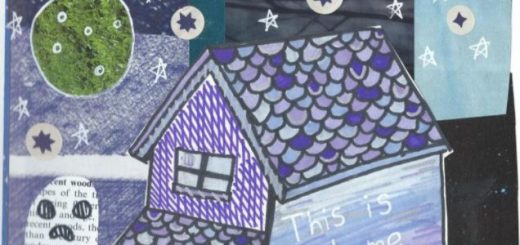Juliet by Cavetown Lyrics Meaning – Decoding the Emotional Labyrinth of Youth
Lyrics
But I can’t get anything out of my eyes
Or my head, did I die?
I need to run
But I can’t get out of bed for anyone
Not for you, hun
My sour boy is a pain
I wanna shoot him in the brain
But I’d miss him in the morning
It really hurts
When I need to so bad but I can’t see her
My Juliet, my special girl
But I need to understand
When I can power through
And when I need some help from you
When I should stand my ground
And when I need to just sit down
Sometimes I act like I know
But I’m really just a kid
With two corks in his eyes
And a bully in his head
I wanna make
A colour that no one else has seen before
I wanna be so much more
I hope that she
Looks at me and thinks “shit, he’s so pretty”
Something I can’t believe
But I need to understand
When I can power through
And when I need some help from you
When I should stand my ground
And when I need to just sit down
Sometimes I act like I know
But I’m really just a kid
With two corks in his eyes
And a bully in his head
Sometimes I act like I know, but I’m really just a kid
With two corks in his eyes, and a bully in his head
Sometimes I act like I know, but I’m really just a kid
With two corks in his eyes, and a bully in his head
In an intimate exploration of the complexities of young adulthood, Cavetown’s song ‘Juliet’ confronts the unsettling silence of emotional turmoil. With an almost conversational cadence, the lyrics unfold a deeply personal narrative that resonates with listeners grappling with the growing pains of self-discovery and unvoiced internal conflicts.
Cavetown, the musical project of British singer-songwriter Robin Skinner, is no stranger to pouring authenticity and vulnerability into his tracks. ‘Juliet’ continues this tradition, encapsulating a moment of raw introspection with poetic simplicity. It’s a modern ode to the struggles of the internal psyche, reverberating with the echoes of a generation.
The Struggle to Cry: Dissecting Emotional Paralysis
The opening lines of ‘Juliet’ strike a chord with the paralysis that grips one’s soul during moments of despair. Cavetown sings ‘I need to cry / But I can’t get anything out of my eyes’, encapsulating an inability to express anguish. This lyrical confession sets a tone of helpless frustration, a theme that weaves itself through the entire song, highlighting the difficulties that come with the need to process and manifest emotions when they seem trapped within.
Within these few words, listeners are invited into a candid space where the silence of mental battles is louder than any scream. The track’s raw honesty provides a mirror to our own moments when emotions sit heavy in the chest, unspeakable and stifling, showcasing Skinner’s gift of translating universal pain into a language of precious, lyrical vulnerability.
An Ode to the Sour Boy: Internal Conflict as a Constant Companion
‘My sour boy is a pain / I wanna shoot him in the brain / But I’d miss him in the morning.’ These lines paint a vivid image of the internal struggles faced by the protagonist. Here, the ‘sour boy’ is possibly an embodiment of the singer’s darker thoughts or his negative self-image, which he wrestles with yet cannot completely detach from.
The song empathizes with the internal tug-of-war, a battle between rejecting and embracing one’s own emotional struggles. It’s a dialogue of the soul where the most severe critic and the only solace are the same entity. The lyrics resonate with the complicated reality of understanding that our demons, while obstructive, are inextricably part of who we are.
Juliet: The Resonant Symbol of Longing and Ideals
Juliet stands as a poignant symbol in Skinner’s poetic universe. She embodies the untouchable, the unattainable. ‘It really hurts / When I need to so bad but I can’t see her.’ Here, Juliet could represent a myriad of desires: a person, the pursuit of happiness, the want for self-acceptance, or even the craving for relief from one’s own critical mind.
In naming this object of longing Juliet, Skinner riffs off Shakespeare’s own archetype of youthful desire and tragedy. This name-dropping creates a dialogue with collective cultural knowledge, deepening the sense of yearning that is both deeply personal and universally understood.
Powering Through versus Seeking Help: The Tightrope of Adolescence
‘I need to understand / When I can power through / And when I need some help from you.’ With these lines, ‘Juliet’ delves into the difficult choices and self-awareness required to navigate mental health. The song acknowledges the bravery in recognizing moments of weakness and the courage it takes in reaching out for help.
Moreover, it highlights the important balance between independence and dependence, self-reliance and vulnerability — concerns that are especially salient during the transition from childhood to adulthood. By doing so, Skinner creates a roadmap that many young adults will find invaluable as they learn to tread the treacherous path of their own emotional landscapes.
The Memorable Line: When the Bully Lives Inside Your Head
Perhaps one of the most profound and relatable lines in ‘Juliet’ is ‘I’m really just a kid / With two corks in his eyes / And a bully in his head.’ This metaphorical gem captures the blindness induced by denial and the torment of self-critique that can lead to a sense of profound alienation.
Skinner’s ability to distill such complex emotions into simple imagery is what makes this song, and this line in particular, linger long after the music has ended. It embodies the central struggle of the song and of young adulthood: the feeling of being unprepared and overwhelmed, yet still having to stand up to the harshest critic you’ll ever face — yourself.








